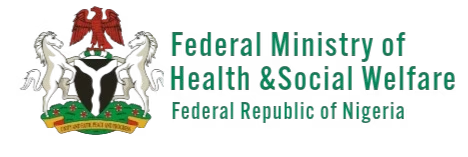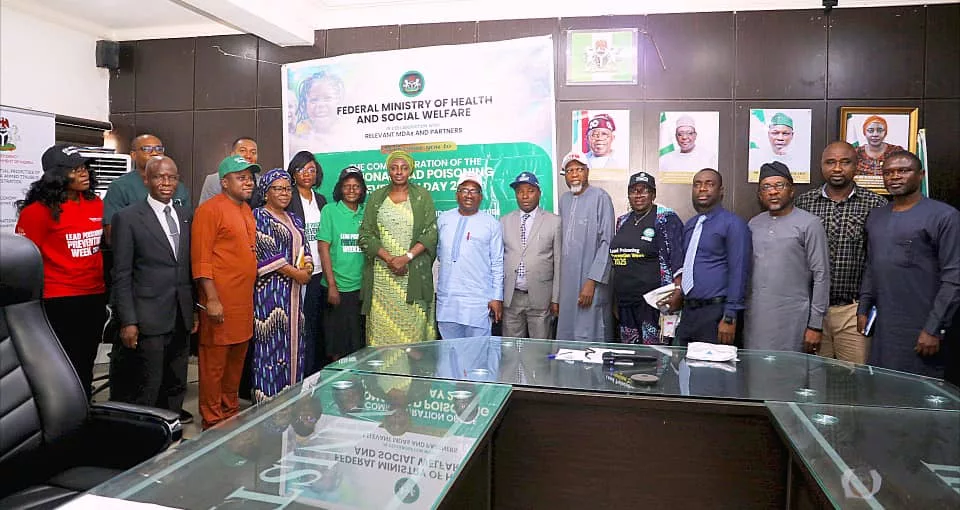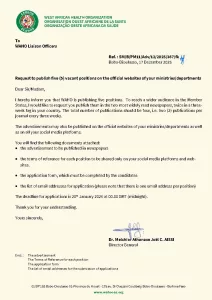As Nigeria Marks Maiden National Lead Poisoning Prevention Day, the Federal Government has reaffirmed its commitment to eliminate lead poisoning in Nigeria, pledging coordinated national action to protect citizens, especially children and pregnant women, from the devastating health effects of lead exposure.
Speaking at the maiden commemoration of the National Lead Poisoning Prevention Day held in Abuja, the Coordinating Minister of Health and Social Welfare, Professor Muhammad Ali Pate, represented by the Permanent Secretary, Daju Kachollom, mni, described lead poisoning as a “silent but deadly threat” that undermines Nigeria’s human capital development.
With the theme “No Safe Level: Act Now to End Lead Exposure,” the Minister said the occasion was dedicated to renewing collective commitment to safeguarding public health, particularly the health of children who remain the most vulnerable to lead exposure.
“Lead poisoning is not merely an environmental issue; it is a serious public health emergency that damages the brain and nervous system, reduces IQ, causes behavioural challenges in children, and contributes to hypertension, kidney failure, and reproductive health problems in adults,” he said. “There is no safe level of lead exposure, and the youngest among us are the most vulnerable.”
According to him, the World Health Organization (WHO) estimates that one in every three children, about 850 million globally, has detectable blood lead levels, while lead exposure causes roughly 47,000 deaths annually in Africa, costing the continent an estimated $135 billion in lost productivity.
Recalling Nigeria’s past tragedies, the Minister cited the Zamfara (2010), Niger (2015), and Sokoto (recent) outbreaks of mass lead poisoning that claimed hundreds of young lives due to unsafe mining and ore processing practices.
“These painful experiences remind us of our urgent duty to prevent recurrence and protect future generations from preventable harm,” he said.
To address these challenges, the Coordinating Minister said the Federal Ministry of Health and Social Welfare, in collaboration with other Ministries and development partners, has taken decisive steps to eliminate lead exposure. This includes the development of a National Lead Elimination Policy and a Five-Year Strategic Plan to coordinate prevention, detection, and response efforts across sectors including Health, Environment, Mines and Steel Development, Agriculture, and Water Resources.
“In September 2025, I inaugurated the National Inter-Agency Working Group on Lead Poisoning Elimination, tasked with strengthening surveillance, reviewing regulations, and mobilizing sustainable financing to end lead exposure in Nigeria,” he noted.
He added that with support from Médecins Sans Frontières (MSF), laboratory equipment had been provided to high-risk states to expand blood lead testing capacity, while children with elevated blood lead levels had received treatment. Community sensitization and health education campaigns have also been conducted to promote preventive actions such as handwashing, safe water use, and hygienic dust control.
The Coordinating Minister outlined the government’s next steps, including the formal launch of the National Lead Elimination Policy and Strategic Plan, expansion of diagnostic networks, strengthened surveillance, access to treatment through the procurement of chelating agents, regulatory enforcement, capacity building for health workers, and continuous public awareness campaigns.
“As we mark this important day, I reaffirm that the Federal Government remains fully committed to ending lead poisoning in Nigeria,” he said.
“This aligns with our national health priorities and global efforts under the WHO and UNEP-led International Lead Poisoning Prevention Week.”
Delivering the welcome address, the Director, Public Health Department Federal Ministry of Health and Social Welfare Dr. Godwin Ntadom welcomed participants to the historic event, describing it as a landmark moment in Nigeria’s public health efforts.
“It is my honour and privilege to welcome you all to the National Lead Poisoning Elimination Day, a landmark event dedicated to reaffirming our national commitment to safeguarding public health, particularly the health of our children, from the devastating effects of lead exposure.”
Dr. Ntadom emphasized that lead poisoning remains one of the most preventable yet under-recognized public health challenges in Nigeria and across the world.
Delivering Clinton Access Initiative CHAI goodwill message, the Country Director Dr. Olufunke Fasawe stated that it recently conducted a national scoping to gain critical insights into exposure sources, surveillance gaps and existing response structures. This, she noted, serves as a foundation for coordinated national roadmap on lead prevention and control.
Speaking, the Chief Executive Officer Resolve to Save Lives commended the Ministry’s efforts to strengthen coordination across sectors, improve regulatory institutions and community partners to reduce lead exposure in consumer products.
On its part, representative of AFENET pledged that the organisation will support the implementation of the strategic plan in line with its capacity, as well as providing technical support to the interagency working group to actualize it’s mandate.
Aside goodwill messages, the event also featured technical presentation by Mrs. Adegbite Director National Lead Poisoning Programme FMoHSW and commitments from stakeholders, marking Nigeria’s first official observance of the National Lead Poisoning Prevention Day, a step aligned with global efforts to end lead exposure under the World Health Organization (WHO) and United Nations Environment Programme (UNEP) frameworks.
Alaba Balogun
Deputy Director/Head, Information
& Public Relations
4 November 2025





